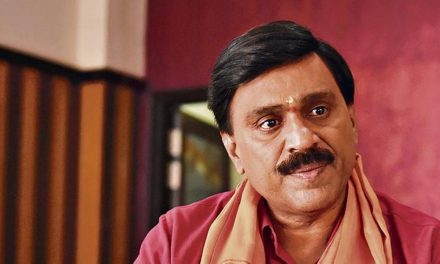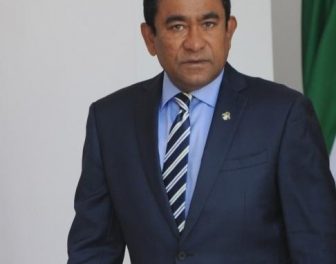
People’s Majlis
30 April 2011. After the initial euphoria when President Nasheed won democratic elections in late 2008, ending Maumoon Abdul Gayoom’s decades in power, hard realities have since set in. The Maldivian Parliament, the People’s Majlis, is one of the most important institutions of the new democracy; unfortunately, it is also where the informal networks of power are most exercised. Just within the past two years of President Nasheed’s administration, instances abound in which MPs have introduced or amended legislation for the benefit of a particular individual or group, to increase their own incomes or political power, to protect members of the former regime’s elite, or to erode the powers of the executive. Three months into 2010, the Majlis passed a no-confidence motion against the then-auditor general, Ibrahim Naeem, over allegations of corruption. Naeem was at the time involved in high-profile investigations of members of the former regime for alleged embezzlement of millions of (US) dollars from state funds. All MPs from the ruling Maldives Democratic Party (MDP) voted against the motion, but former President Gayoom’s Dhivehi Rayyithunge Party (DRP) holds the Majlis majority, with the People’s Alliance, led by Gayoom’s brother, MP Abdulla Yameen. Several MDP MPs alleged the accusations against Naeem were politically motivated, but without a Majlis majority, failed to prevent Naeem’s removal from office. Unusual for a court of law in any country, the Criminal Court sat after midnight to order Yameen’s transfer into house arrest. With Naeem gone, the cases he was investigating disappeared from the public domain. Rough justice Velezinee is also a president-appointed member of the Judicial Service Commission (JSC), set up to oversee such reforms. During the years of President Gayoom’s regime, the judiciary was seen as an extension of the civil service. The judiciary is another institution of the new Maldivian democracy in which the old system of paternalist governance continues to reign supreme. The judiciary that President Nasheed’s government inherited, therefore, is one comprising of a large number of unqualified judges, several convicted felons and many individuals who remain beholden to the former regime. The key to the JSC’s open resistance to democratic reform lies in its composition. The 10-member Commission comprises three judges, two members of Parliament, one member of the Civil Service Commission, a member of the law community, a member of the public, the attorney-general and a member appointed by the president (Velezinee Aishath). As far as the representative of the civil service is concerned, the Majlis recently passed amendments to existing legislation that brings the Civil Service Commission, and therefore its representative at the JSC, under its complete control. The law community’s representative was originally to have been elected by votes of the law community itself, excluding sitting judges. A court decision to allow sitting judges to vote in electing a law community representative at the JSC has meant, however, that anyone elected to the post remains beholden to the judges before whom they appear as practising lawyers. Cabinet appointments. A large number of these individuals, however, have been deliberately sidelined, as the bench continues to be occupied by JSC-approved judges with lower qualifications. The most recent High Court appointments by the JSC, in January, ended in controversy with two failed candidates filing a case against the Commission for being biased in their appointments. It has chosen, instead, to investigate Velezinee for putting JSC documents in the public domain. Quality of media Both the law community and the media have been notably lax in taking issue with the lack of an independent judiciary. It was only recently, in February this year that the Maldives Media Council, established in May 2010, got around to adopting a code of ethics for the country’s media professionals. This raises two possibilities: the Maldivian Media Council does not regard local journalists as professionals with the ability to critique or question a court ruling; or two, it regards court rulings as beyond scrutiny. The Maldives shot up the World Press Freedom Index by 53 points in 2009, to occupy 51st place. The Maldivian law community, meanwhile, is caught between furthering personal ambition and working towards democratic consolidation. Members of the relatively new Maldivian law community are often too in thrall of their own success to put personal ambitions aside and pick up the fight for the judiciary’s independence. As long as the JSC remains in its current form, it is very unlikely that the Maldivian law community will come forward with criticism of the current status of the judiciary, let alone come together to campaign for judicial independence the way their peers in Pakistan did not so long ago. The Majlis has similarly disregarded the JSC’s refusal to fulfil its constitutional obligations. By the people? As countries in West Asia and North Africa are showing, democracy cannot be imposed by force – it gets consolidated if, and only if, the people want it. Democracy is impossible without the people’s will and desire to keep it. Likewise, in Addu Atoll, which recently became the country’s second largest city and contains the largest population of educated people after Male, the MDP won all the seats. Without entering into cultural determinism, it is possible to say that, without first educating the people about democracy, its consolidation in the Maldives will remain impossible. At the end of last year, Transparency International declared the Maldives one of the most corrupt countries in the world, ranked at 143rd out of 178 – lower than any other SAARC country but Nepal. According to the UN Human Development Index, there are only 62 other countries in the world where people have a worse quality of life than the Maldives, placing it 107th out of 169 countries.













